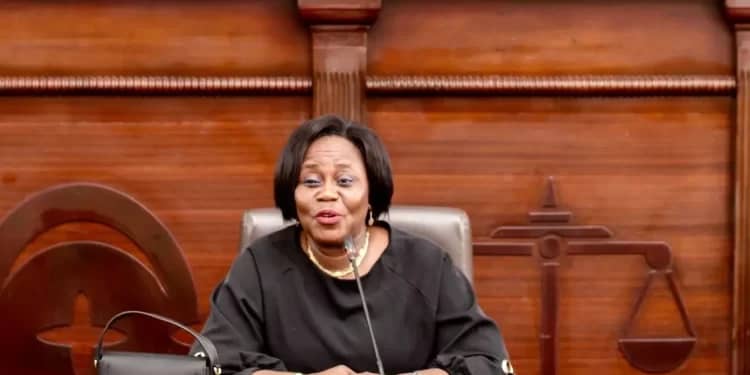The Supreme Court of Ghana has provided a detailed explanation behind its decision to uphold a suit filed by Majority Leader, Alexander Afenyo-Markin.
The case centered on the interpretation of Articles 97(1)(g) and (h) of the Constitution, which address the circumstances under which a Member of Parliament (MP) loses their seat.

In its ruling, the court clarified that an MP only vacates their seat if they change their political identity and continue to serve in Parliament under that new identity.
This decision is significant in determining the application of constitutional provisions concerning MPs who switch political parties or those who transition from an independent status to party affiliation.
The court made it clear that the provisions in Articles 97(1)(g) and (h) apply only to the current parliamentary term.
Therefore, these articles do not affect future terms or elections, even if an MP contests an election under a different political affiliation. For example, an MP who switches political parties while still serving in Parliament must vacate their seat and recontest in the next election under the new party.
Likewise, an independent MP who decides to join a political party must also vacate their seat and may run again under the party’s banner if they choose.
The Supreme Court’s ruling further emphasized that the constitutional provisions governing the vacation of an MP’s seat are not meant to cover future electoral aspirations or candidacies but are intended to apply to the current parliamentary term. As such, the decision is focused on preserving the integrity of parliamentary representation within the ongoing legislative period.
The judgment, authored by Justice Yaw Darko Asare, serves as a clarification of the scope and intent of Articles 97(1)(g) and (h), ensuring that MPs who change political affiliation during their term do so with a clear understanding of the constitutional implications.
In light of this decision, the Supreme Court has set a legal precedent that will guide future interpretations of parliamentary law, especially in instances where MPs alter their political identities.
The full judgment issued by the Supreme Court provides more extensive reasoning on the issue, and a copy is attached for reference.
http://ALEXANDER_AFENYO_MARKIN_VRS_SPEAKER_OF_PARLIAMENT_&_ANOR[1]
























































![[FREE FREE MONEY] Predict and Win a Guaranteed GH¢200 From Us EVERY WEEK](https://wordpress.ghanatalksradio.com/wp-content/uploads/2022/02/Predict-and-Win-Final-09-03-2021-218x150.jpg)
![[Predict & Win – 8th/Oct.] WIN A Guaranteed ¢200 From Us This Week](https://wordpress.ghanatalksradio.com/wp-content/uploads/2021/10/maxresdefault-16-218x150.jpg)
![[Predict & Win – 2nd] WIN A Guaranteed ¢200 From Us This Week](https://wordpress.ghanatalksradio.com/wp-content/uploads/2021/09/maxresdefault-50-218x150.jpg)
![[Predict & Win – 25th] WIN A Guaranteed ¢200 From Us This Week](https://wordpress.ghanatalksradio.com/wp-content/uploads/2021/09/maxresdefault-36-218x150.jpg)
![[Predict & Win – 18th] WIN A Guaranteed ¢200 From Us This Week](https://wordpress.ghanatalksradio.com/wp-content/uploads/2021/09/maxresdefault-23-218x150.jpg)









![[National cathedral] See full list of churches that have contributed since 2018](https://wordpress.ghanatalksradio.com/wp-content/uploads/2020/09/Ghana-National-Cathedral-GhanaTalksRadio-100x70.jpg)



